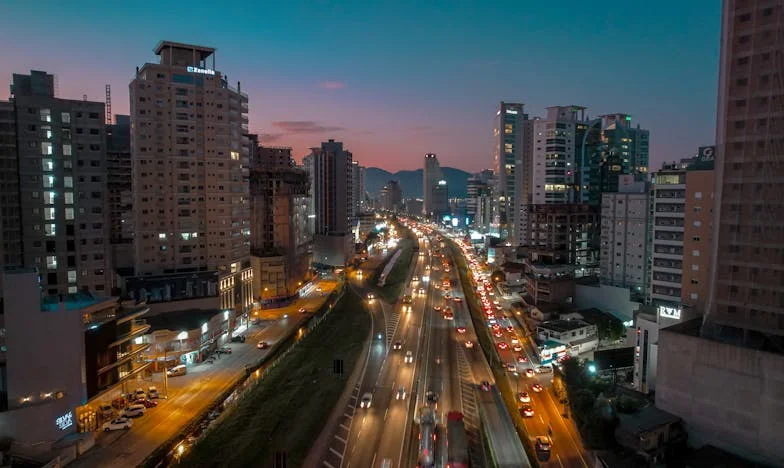The Last Picture on My Desk: A Birthday Reckoning
“Dad, are you coming home soon?” My daughter’s voice crackled through the phone, the sound brittle and urgent.
I stared at the photograph propped against the monitor. The frame was chipped—Sarah had dropped it last winter, and I’d meant to fix it. In the picture, we’re all smiling, the kind of smile you force for the camera when you’re already late for work. My hand, steady on Sarah’s shoulder. Megan, clutching her favorite stuffed rabbit. And Emily—my wife—her eyes searching the lens for something, maybe a reassurance I could never offer.
“I’ll be home by six, Meg,” I promised, my voice softer than I intended. “It’s my birthday. I wouldn’t miss it.”
I hung up and surveyed my desk. For once, everything was in its place: the contracts stacked, the pens aligned, the Post-its color-coded. It looked like the kind of desk that belonged to someone who had his life together. But the order was a lie. I’d only tidied up because I was taking a week off—a small miracle in the Haskins & Moore accounting firm, where personal time is a currency you hoard and rarely spend.
I pushed my chair back, grabbed my jacket, and hesitated. The photo again. It was my fortieth birthday, a milestone, they called it. The words felt heavy. I should have been excited for the lakeside cabin I’d booked, the fishing, the s’mores by the fire. But something in that chipped frame gnawed at me, a reminder of how fragile the picture really was.
The elevator ride down, I rehearsed my smile. The one I’d use when Emily opened the door, when my mother called—again—to remind me I was officially “over the hill.” But as I stepped into the parking lot, my phone buzzed with an email: “URGENT: Q2 Forecasts Missing. Need by EOD. – Don.”
I cursed under my breath. Don, my boss, knew about my vacation. I should have shut off notifications. But I couldn’t help myself—I was the provider, the fixer, the man who never let anyone down. That’s what my dad had done, until the day he didn’t.
I slid behind the wheel, the car smelling faintly of stale coffee and Megan’s soccer cleats. I texted Emily: “Running a few minutes late. Something came up. Love you.”
Three dots, then nothing.
Traffic crawled. The sun dipped behind the strip mall, painting everything in a garish orange. My hands tightened on the steering wheel. I replayed last night’s argument:
“You’re never here, Igor. Even when you are, it’s like you’re somewhere else.”
“I’m working for us, Em. This is what we wanted. The house, the schools—”
“What I wanted was you. You, not the man who lives on his phone.”
I’d slept on the couch. Megan found me at 6 AM, tucked a blanket around me, and whispered, “Don’t be sad, Daddy.”
I pulled into our driveway at 6:37. Balloons bobbed in the window. Megan pressed her face to the glass, waving frantically. Emily stood behind her, arms crossed. The party was supposed to be just us—my mother had insisted on coming, and my brother, Tom, would show up late, as always, with a six-pack and a smirk about my “midlife crisis.”
The door opened before I reached it.
“You’re late,” Emily said, not unkindly, but not forgiving, either.
“Sorry, work—”
“Of course. It’s always work.”
Megan threw her arms around me. “Happy birthday, Daddy! Did you see the cake? Mom made your favorite.”
“Chocolate with raspberry,” Emily said, managing a small smile. “Your mom’s in the kitchen. She brought her famous potato salad.”
“And opinions,” I muttered. Emily almost laughed.
We ate in the backyard beneath string lights. My mother recited my childhood embarrassments. Tom arrived an hour late, as predicted, already two beers in, and made a toast: “To Igor! The only guy I know who could turn a birthday into a tax seminar!”
Everyone laughed, even Emily, and for a moment, I let myself believe things were okay.
Later, after cake, Megan fell asleep with frosting on her nose. My mother hugged me too tightly, whispering, “You’re a good man, Igor. Don’t forget that.”
Emily and I lingered on the porch. The air was thick with June humidity and unspoken words.
“I saw you looking at that picture this morning,” she said.
“It’s silly, but… it feels like we were happier. Back then.”
“Were we? Or did we just smile better for the camera?”
Silence. I wanted to reach for her, but I didn’t. Instead, I stared out at the dark lake beyond the fence.
“Maybe the problem isn’t work, or the house, or even us,” Emily said. “Maybe it’s that we stopped asking what we actually want.”
I swallowed. “What do you want, Em?”
She shook her head, tears shining. “I want to want us again.”
She went inside. I sat in the dark, the night pressing in. My phone buzzed. Another email from Don. I turned it off.
The photograph was still in my hand. I traced the crack in the glass and wondered when it had started, this slow fracture. Was it one fight too many? One missed recital? Or just the relentless American grind, the way you’re told to chase more, and more, until you have everything but yourself?
I watched the lights go out, one by one, in my house. My house. My family. My life—so carefully arranged, like papers on a desk. But what if order is just another way to hide the chaos?
I’m forty today. I have a beautiful family, a good job, a house on a street with trimmed lawns. But I can’t shake the feeling that something essential is slipping through my fingers.
Does anyone else ever feel like the picture—the life we show the world—isn’t the life we’re actually living? And if so, what do we do before the cracks become too deep to fix?
